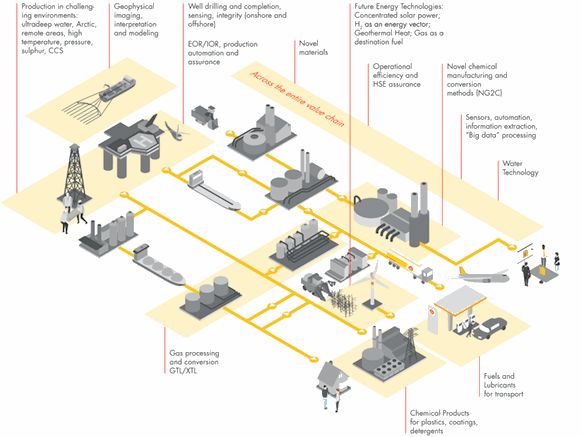Royal Dutch Shell has won both criticism and praise for its green investment habits -- but when it comes to venture capital, it’s pretty tightly focused on serving its own oil and gas business needs first.
That’s one way for green technology startups to view the Dutch-based oil giant’s new VC plans. On Tuesday, Shell Technology Ventures announced it intents to invest “hundreds of millions” of dollars into emerging technology companies via its second venture fund.
Geert van de Wouw, director of Shell Technology Ventures, told me in a Tuesday interview that about three-quarters of the money is aimed at industry-specific fields like oil and gas exploration, sub-surface visualization, well construction and automation, and water and fluid treatment.
But one-quarter of the fund will be directed at what Shell calls “future energy” technologies, he said, which can include everything from advanced biofuels to solar-assisted enhanced oil recovery (EOR).
In fact, Shell Technology Ventures’ second fund has already made its first investment, he said, in the form of its share of a $26 million Series B round for GlassPoint Solar. The Fremont, Calif.-based startup is using the sun’s heat to create steam for EOR in California’s Central Valley oil fields -- one of several solar thermal power projects seeking to turn renewable energy to the oil industry’s advantage.
In general, STV is looking for technologies to help solve challenges or open opportunities for renewable energy and efficiency in the oil and gas fields, he said. It’s also looking for new ways to glean insights from the massive amounts of data that oil companies collect in the process of turning geological survey data into new discoveries of black gold, and is in active talks with “big data” startups and venture connections in Silicon Valley on that front, he said.
This is the second fund for Shell Technology Ventures, which launched in 1997. In 2007, it sold its first fund to Kenda Capital, and has since seen some portfolio companies testing products that could be rolled out by Shell in the near future, van de Wouw said. That makes sense, since they were Shell spinout technologies to begin with, he noted.
Shell Technology Ventures Fund II is “actually quite different,” he said. “We invest directly into third-party technology companies that we think have an exciting strategic fit, with Shell technologies that would benefit from partnering with other companies.”
Van de Wouw wouldn’t say how much the fund is planning to raise, saying that it depended somewhat on how much investment opportunity the firm discovers out there. Its core purpose remains to invest in technologies Shell can use, at first in test-runs at its sites, and then for broader commercial adoption, he added.
Van de Wouw also wouldn’t name any other companies the fund was considering investing in on the “future energy” front, though he noted that carbon capture and storage was one area of interest, as are ways to integrate renewables into the company's energy operations. Biofuels aren’t a particular focus of the new fund, as Shell has billions of dollars invested in that sector already, he added.
Neither is Shell looking to invest in startups that plan to challenge industry giants with new forms of hardware like solar panels, he said, though it’s interested in technology to help integrate renewable power into its operations, as with GlassPoint.
Back in 2009, Shell caught some criticism from environmentalists when it sold off its investments in wind and solar power to concentrate on biofuels and carbon capture and storage (CCS) technologies. Getting out of solar PV manufacturing now seems like a wise move, in retrospect. Oil companies have a spotty record in the solar business -- BP abandoned its longstanding solar business, although Chevron has Chevron Energy Solutions, and Saudi Aramco is developing solar projects in the Middle East and North Africa. French oil giant Total bought SunPower in 2011, with the longer-term aim to “transition from selling modules to selling energy,” SunPower CEO Tom Werner told us in a recent interview.
Shell: Which technologies do we support?




